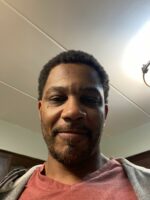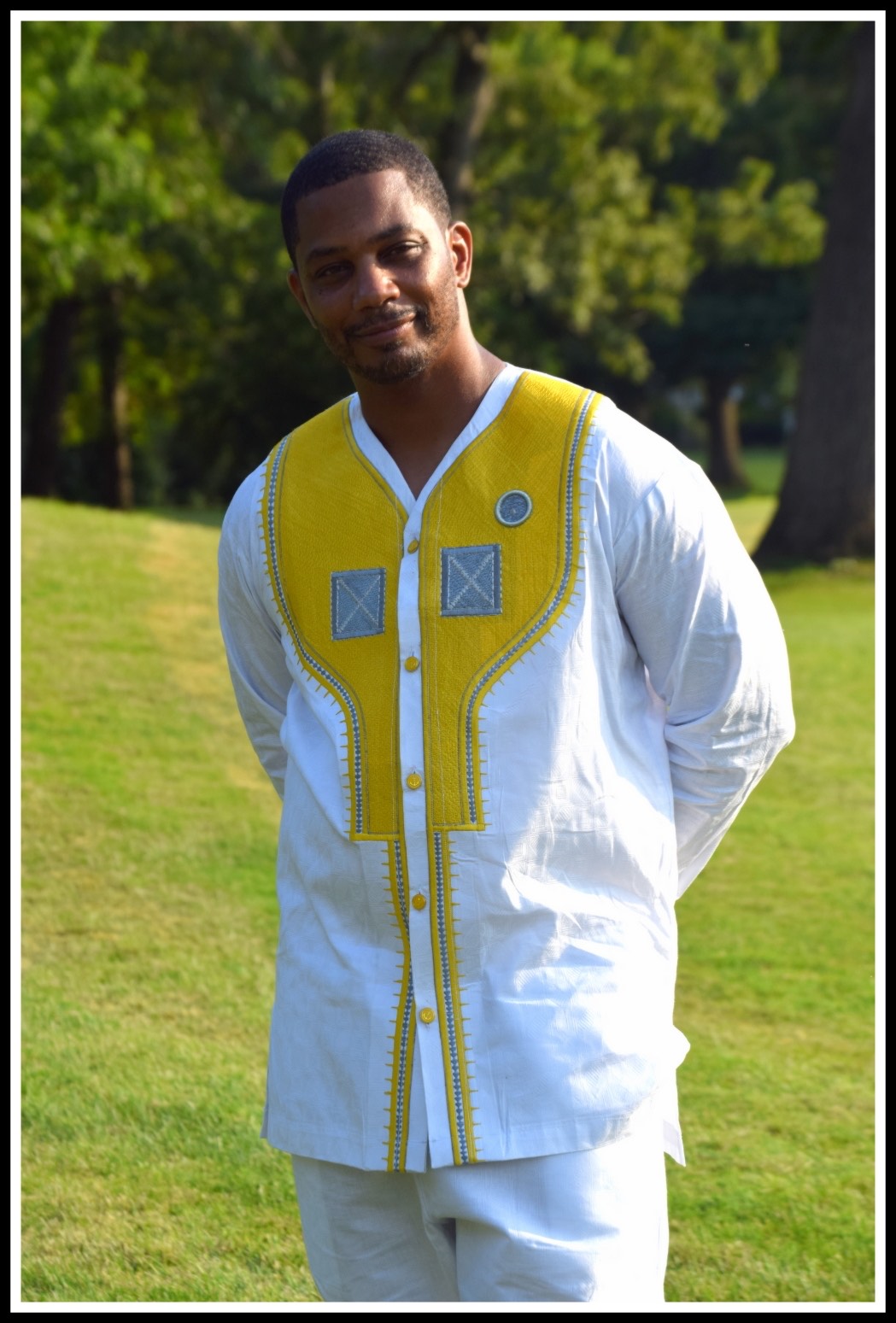Christopher Lacy and The TGC Group recently won a Tier 3 conditional license under New Jersey’s social equity licensing program. Their story is one of misfortune, persistence, family and the dreadful effects that cannabis prohibition and the War on Drugs has had on impoverished BIPOC communities.
Chris’s father was a sharecropper in Mississippi before he moved to Illinois and started a family. Growing up in a poor neighborhood of Chicago, Chris was surrounded by gangs and crime. He started selling drugs when he was 12 and went to prison for cannabis before he was old enough to drink. When he got out, he saw firsthand the effects that incarceration has on a person, their family and their community.
Back in 2020, Chris Lacy and his wife Taneeshia Thomas applied for a craft grow license under Illinois’s new social equity program. Taneeshia wrote an article for Cannabis Industry Journal highlighting their story.
When it was first announced, Illinois’s social equity program seemed revolutionary and one that other states soon followed, setting the stage for markets all over the country to establish social equity licensing programs. However, legal hurdles, red tape and intense litigation have bogged down the system, causing severe delays. Chris and Taneeshia are still waiting to hear back about approval of their license application, years later.
Good news came recently when they were notified that they were awarded a conditional license in New Jersey. With the help of his family, business partners and The Garden State, The TGC Group is moving forward with launching their business. We caught up with Chris, to check in on his business’s progress, hear his story and see if it might inspire others to take a similar path.
Cannabis Industry Journal: Tell me a little bit about yourself and your story with cannabis

Christopher Lacy: I grew up on a dead-end block in a little town in Illinois on the far south side of Chicago called Robbins. It has a very high crime rate and a very impoverished community so as you could imagine we grew up pretty poor. I personally didn’t feel the effects of poverty until just before I turned 13. I guess that became more obvious as I started hanging out and seeing that most of my friends had more than 2 pairs of pants. I starting selling drugs when I was 12 years old. When I was about 16-17 years old, I had started trying to grow cannabis. Like any task, it takes time to develop the skills produce a good product. Cannabis definitely has it challenges when it comes to cultivating a product that could be considered good.
It’s not like there was an abundance of information out there specific to cannabis cultivation to aid in the task so besides the basic book knowledge of horticulture, you had to grind it out. It took me a couple years to really get it figured out. Once I did get it going, I started expanding. At first it was basements in the suburbs. We’d grab really nice houses and fill the basements with plants. When that wasn’t enough, we started doing warehouses. There was no real limit, outside of capital and the desire to not draw attention via odor or traffic from workers, if you could produce it, the demand was there. I did go to prison for a short stint when I was 20 years old for delivery of a controlled substance. 0.8 grams. After I got out of prison, I had a very successful illegal operation growing and selling cannabis. Life was pretty good for a few years. I wasn’t rich or anything like that but I was able to be around my family and provide the things that I was denied when I grew up. I don’t blame my parents for what I went through growing up. Because of my father’s age, I’m generation 1 out of the sharecropping era. My parents believed in one thing and that was learning. I tried to instill that into my kids as well. Being a father feels really good to me. Unfortunately, that dream was ended when I was arrested in one of our warehouses in Illinois. I did 3.5 years, locked down 21 hours a day for growing weed.
While serving my time I was able to really take a look at myself and develop a new me. I established some new core principles that I would hold close to my heart. One of them being not going back to jail for the sake of a dollar. I was not going back to prison. I had kids when I was young so I missed out on a big part of their childhoods. I had three daughters and two sons at the time that were of an age where having a stable home plays a huge role on how the child will turn out in the future compared to a typical American lifestyle. When I got out of jail, my kids came and lived with me during and after high school but some serious damage had already been inflicted. I worked a job as a truck driver and did the best that I could to support my family, but I never really gave up on cannabis in the back of my mind. My older brother used to always tell me that I didn’t learn what I knew about weed for nothing and that one day it would all make sense.

For the next few years, we just grinded it out as a family. It wasn’t the ideal situation but we made it work. And when we couldn’t make it work, we lived with it! I just was glad to be there doing Chemistry homework with the kids. That shows what happens when a father is at home with his family. We get college grads.
When the message came out that Illinois was going to do craft grow licenses, I got really excited. I figured this was my chance to do what I love and to make a living doing it. I had no idea how I was going to get to where I wanted to be but I figured if I could just put one foot in front of the other, sooner or later I would get there. I caught a break when my nephew, Edward Lacy, introduced me to someone who understood the application process. She introduced me to some of the most wonderful/helpful people in the world. People who literally wanted to help true social equity applicants like myself. With the help of these new friends, we were able to drop our first application in Illinois. After we submitted that application, that is when the first story came out about us in Cannabis Industry Journal. This story helped me get into a conversation with Cresco labs and I was able to get into a situation that really changed how I saw cannabis production. I got to work around some of the smartest people in the industry for just under a year. I can’t thank Charlie, Barrington and the rest of the guys at Cresco enough for the opportunity. From there, I knew it had to be my destiny to grow cannabis for a living. I just kept beating up the phones and emails. Something was gone give.
CIJ: When we last spoke, you were trying to get a social equity license in Illinois, can you tell me about that? How did it go?
Chris: Ultimately, after 2 years of waiting, we were denied a license in Illinois. When I first got this news. it took me about a week to get out the bed. Lol. It took my wife to pull me through. I can only imagine the pain that all the other disappointed groups are feeling, Ultimately, we all couldn’t win in Illinois so it is what it is. But definitely a big shout out to all the successful applicants that did win. You all have a torch to carry that should ignite the black and brown communities.
From the political standpoint in Illinois, it’s just not conducive for social equity applicants to succeed due to all of the legal hurdles, courts, lawsuits, etc. Not to say that the Illinois process is truly different from other states going through similar processes, New Jersey and other states went through a similar process when social equity licenses were announced. The laws that helped me qualify are what came out of the legal battles in New Jersey. The issue is the resources available for legal fees, holding property, and the time required to see these things through; this all equals dollars and that’s just something lacking in most social equity groups.
CIJ: So, what made you look at New Jersey?
Chris: After I had submitted my application in Illinois, I began looking for financial support. I knew this would be my limiting factor because access to the type of capital required to get a grow facility off the ground is quite substantial. For the most part no one returned calls but I called one financial institution in particular, VenCanna Ventures, and for some miraculous reason, they returned my call. I’m not sure what made them; but we kept an open line of communication going all while we were dealing with Illinois. I knew these guys were good because they were behind an impressive project in Ohio that actually won LEED certification. When I look back on it, it felt like a one-year interview. Then one day this past winter David McGorman, the CEO, asked me to partner up with him in New Jersey. It was exactly what we both needed. He has the expertise in finance and I bring the operations side.

Once we had that team together, we put together a strategy to try and apply in New Jersey. We built the application and New Jersey actually had some very unique laws. If you had a cannabis conviction, you could qualify. Also, my oldest daughter, Janeace, whom I think my prison time hurt the most, actually lives in New Jersey with my granddaughter. So, she’s our resident in the state that helped us win the application and now a part owner, which led us to where we are now. I just couldn’t be more excited about all of this. It just feels right
We won a tier 3 conditional license and now we’re working on finding a good facility and building the operation.
CIJ: How did you set up your social equity license application for NJ?
Chris: It was a process very similar to Illinois except that the process was split into two phases. A conditional license and an annual license. Phase one was winning the conditional license. This is a more condensed application compared to what I was used to. After filling out the application, we had to submit a bunch of documents and proof of incarceration. That was for the conditional license. We still have to convert the conditional to the annual. The conditional basically tells us that we qualify and we can move forward with the rest of the business plan, find some property and spend some money on a lease. We’re still in that process for converting to annual, but we have won the conditional.
CIJ: What is your plan now that you’ve received conditional approval?
Chris: Right now, we’re working on property and securing a space for our facility. We are pretty close to nailing down a couple good locations. One of the locations that I am really excited about is in Somerset County. If we can lock down the property, submit everything to the state as far as our SOPs, security plans, cultivation plan, design, etc. we can try get approval to convert to the annual license and then we can start the build out. The good thing about the two-step process is that it really helps when it comes to spending money. Basically, if you don’t win a conditional, don’t go out spending tons of cash trying to hold onto property.
CIJ: You’ve come a long way from being put in prison for cannabis, to now being close to establishing a business in New Jersey. What made you decide to stick with the business of cannabis?
Chris: You know, I can’t really describe it very well. It was just one of those feelings, you know it felt good to me. It drew me in when I was a young kid, although, I actually didn’t try using cannabis until I was 21. That’s when I first used it and it really jelled with me. Also, I’ve always loved gardening.

My father was a sharecropper in Mississippi, when our family moved to the suburbs of Chicago the first thing he did was plant a huge garden. I grew up in the garden and around plants. He used to spend so much time in that garden and I loved being there with him. We grew everything out there year after year until he was too old to keep it up. I can’t imagine a more peaceful environment then out in the fields with the plants.
It was also therapeutic, not just the obvious therapeutic aspects of cannabis, but also how therapeutic gardening is. Working with cannabis plants can be a challenge. To try to achieve unique terpene and cannabinoid profiles has always been a lot of fun for me. I love the challenge. Pushing genetics as far as I can to really experience what different cultivars have to offer. It is just one of those things that has always stuck with me and I really enjoy it. Once it became legal, a world of opportunity opened up for me.
You know, people say if you do something you love, you’ll never have to work a day in your life. I was a truck driver after I got out of prison, and I really didn’t like it. I had to have neck surgery from the pounding my spine took. I had to work long hours, man I hated doing it. On the flip side, cannabis is something I love to do. And this is about me trying to control my own destiny, control my own life. I don’t have to struggle mentally and physically just to provide for my family. That’s what keeps me going – the drive to do what I love to do to provide for my family. I see cannabis cultivation as more of an art than I do anything else. The guy behind the growing at any facility in the country could share with people what he believes to be fire. I just love to provide an experience and there’s nothing more satisfying than a satisfied customer. Everything about this process seems to fit perfectly with my life.
CIJ: It’s a pretty inspiring story. How do you hope your story might inspire others to follow in your footsteps?
Chris: I don’t want someone to follow in my steps as far as breaking the law and going to prison. I had to learn this the hard way, you know I didn’t agree with the law, but it doesn’t matter. Whether you agree or disagree with the law, I don’t advise anyone to be a criminal.
On the other hand, I do believe that black and brown people have been impacted by the war on drugs the most. In whatever capacity they can, they should chase the opportunity in this country as the cannabis market evolves. It’s a new industry, it’s a way for people to build wealth, to maybe raise their families out of poverty. So in that sense, yes, I do hope people see my story and see that they could do this too. And if you still out there getting it the best way you know how, God Bless you! Lord knows it breaks my heart every time I see someone get arrested for cannabis. Hopefully that shit stops soon and we can get these mothers and fathers who are basically prisoners of a bogus war, reunited with their families and hopefully they get a chance to rebuild.
This a chance to build generational wealth if it’s done right. I would hope that anyone looking for an opportunity, look into the cannabis space. I know its evolving fast and the window might seem like its closing but that isn’t the case. This is more like the 2nd inning of a baseball game. There plenty of time to get going.
I don’t think I’m the best role model. I just keeping fighting. And my advice for black and brown folks that might have gone to prison or might be put in a similar situation is this: Its never over. It’s never too late, no matter what somebody does. It’s not the end of the road. It’s just a bump at that moment. Just keep fighting. One step at a time. I do hope that people reach out to me.
I would love to work with anyone as long as they on a positive path, especially convicted felons. God Bless the felons! That’s my number one priority on my list. The guys that have been to prison, the non-violent drug offenders. Our society has a way of shunning those people. Some of the smartest people I’ve met in my life were in prison. It doesn’t speak to the character of an individual because they went to jail. If the system is supposed to work then why is it so hard for a convicted felon to get another chance? Of course, a few people have traversed this path successfully but there are so many more.
CIJ: I know your business is called The TGC Group. Out of curiosity, what does that acronym stand for?
Chris: We’re called TGC New Jersey under our license there and we applied in Illinois under the name, The TGC Group. TGC stands for a lot of things. It has a lot of meanings. I came up with it when I was in prison. I called it The Gathering Company. It was an idea I had because I was reading The Wall Street Journal every day in prison. I wanted to gather people under one umbrella.
But also, my name is Chris, my wife’s name is Taneeshia, (whom I am forever grateful for helping me pull my life together) and we have a son we named Grant. So, the first letter of each of our names also make TGC. It also stands for The Good Choice, because it is a good choice. The Ganja Connoisseur is another good one. I just hope that it grows to be known as a quality brand of cannabis that one can count on for consistent high-quality cannabis. Consistency and quality are what we’re striving for relentlessly.
I hope people read this article and feel inspired. We have a responsibility to give back to the community. We have a responsibility to rebuild what’s been destroyed in our communities. I am just trying to do my part. I was not a nice guy growing up, you know I was a gangbanger. But now, I want to rebuild and give back to my community the best way I can in Chicago. Not just my community, I want to give back to New Jersey communities, because we’re in their house now. I want to give back to Mississippi communities, where my family comes from. I’m not in this to get rich, I am in this to build communities. God willing, we will



